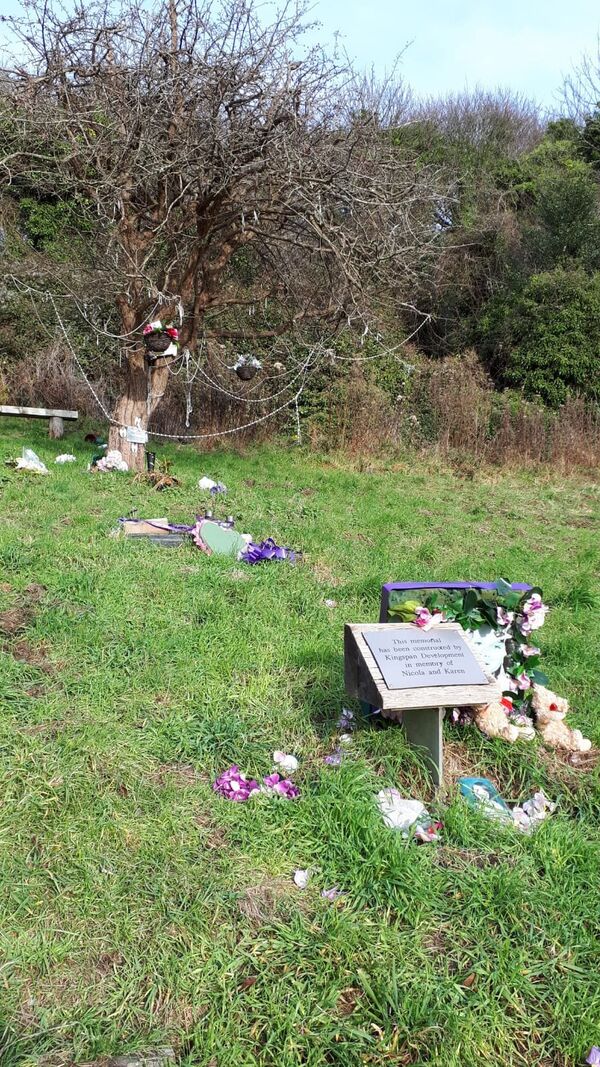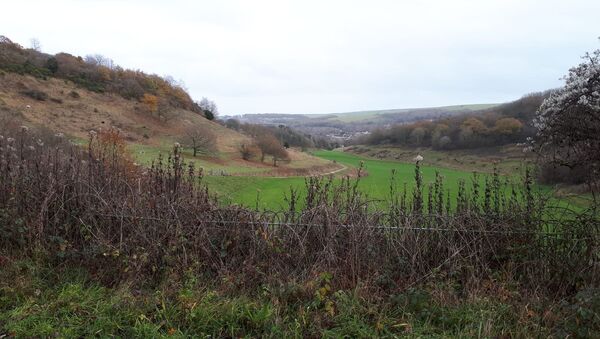On Monday, December 10, a jury at the Old Bailey found Russell Bishop, 52, guilty of murdering Karen Hadaway and her friend Nicolas Fellows, both nine, in a park on the outskirts of Brighton.
Bishop had been acquitted of the murders in 1987 but had been in jail since 1990 after being convicted of kidnapping, sexually assaulting and attempted to murder a seven-year-old girl at Devil's Dyke, near Brighton.
During his trial Bishop claimed he was wrongly persecuted by the police and by neighbours in Moulsecoomb, a working class housing estate.
#Breaking “Wicked” paedophile Russell Bishop has been found guilty of the Babes in the Woods murders at the Old Bailey, ending two families’ 32-year fight for justice pic.twitter.com/QI90dE1Sa5
— Press Association (@PA) 10 December 2018
Bishop's lawyer, Joel Bennathan QC, even went so far as to try to point the finger of blame at Nicola's father.
But Bishop's lies were exposed under cross examination by the prosecutor, Brian Altman QC, and he refused to give any more evidence after only 90 minutes in the witness box.
I was nine in 1986 – the same age as Nicola and Karen – and remember (but did not understand) this dreadful story. Russell Bishop is already jailed for life, so more's the pity he didn't spare the children's families another traumatic trial. May they rest in peace.
— Amber (@ambswords) 10 December 2018
Liz Yardley, a professor of criminology at Birmingham City University, said the case — dubbed "Babes in the Woods" by the tabloid press — had been in and out of the media spotlight over the years.
'Spotlight on Perpetrator, not Victims'
"Unfortunately the attention has always been on the alleged perpetrator rather than the victims. I am surprised that it has taken such a long time to get to this stage — most murders are solved relatively quickly and the police apprehend the person responsible. This is because most murderers know their victims and are not particularly good at covering up after themselves," Prof. Yardley told Sputnik.
She said Bishop was a "textbook narcissist".
"Narcissists are people who have three priorities in life: me, myself and I. They go through life relentlessly pursuing their own wants and desires with no regard or the rights or feelings of other people — their sense of entitlement is immense. They are also acutely affected by what other people think of them and their daily lives become an ongoing exercise in impression management. They always place themselves at centre stage because they feel like they deserve the attention," Prof. Yardley told Sputnik.
Russell Bishop, 52, has today been found guilty of murdering two nine-year-old girls in #Sussex in 1986. He was prosecuted by @cpsuk under 'double jeopardy' rules having been previously acquitted in 1987: https://t.co/vOfJDxId0y pic.twitter.com/68cP7foUqP
— CPS (@cpsuk) December 10, 2018
"When narcissists are criticised or called out on their behaviour, they become incredibly defensive, often claiming the victim role for themselves and running the often used ‘poor me' narrative. People from all backgrounds and walks of life can be narcissists, it's not something unique to criminals or particular types of criminal. What they all have in common is an underlying sense of shame — they essentially do not like who they are and will mask this with exaggerated bravado, which alternates with feelings of worthlessness," Prof. Yardley told Sputnik.

She said it could be very difficult to spot a determined sex offender, like Bishop.
Sex Offenders 'Thrive in Communities Which Don't Trust Police'
"They are like chameleons and will ingratiate themselves within a community, forging friendships and dependencies with people and winning their trust. Once someone is part and parcel of a community, it can be very difficult to accept that they would deliberately harm people within the community. Offenders like this are particularly successful in communities where levels of trust in the police and social services are not strong — people will continue to believe, even after many years and sometimes irrefutable evidence of a crime, that this person is ‘one of them' and could never do such a thing," Prof. Yardley told Sputnik.
Bishop, who was jailed for life for the 1990 attack, has been in prison for almost 30 years and would have been offered treatment in prison for his sexual deviancy.
But he told the trial he was not a paedophile and had no sexual interest in children, which meant that treating him was almost impossible.
"There are a range of treatments and therapies available for sex offenders within prisons. However, the key point to make here is that people can change their behaviour but they need to choose to do so. It is possible for someone convicted of sexual offences to not offend again. In order for this to happen, they need to accept responsibility for their crimes and engage in a process of change in which they address the underlying personality traits and behaviours that led them to choose to hurt other people. If they don't want to change, if they feel their behaviour was justified and they were entitled to do the things they did (very common among narcissistic offenders) then they won't and they will remain incredibly dangerous," Prof. Yardley told Sputnik.
Bishop is expected to receive a whole life term when he is sentenced later this week.
Detective Superintendent Jeff Riley said Bishop said Sussex Police had "never given up on this investigation".
"I still feel it's a shadow over Brighton to this day," said Det. Supt. Riley.
"Our thoughts today are with Karen and Nicola's families, who have shown remarkable resilience throughout this ordeal over the last 32 years," said Nigel Pilkington, from the Crown Prosecution Service.
The views and opinions expressed in this article are solely those of the speaker and do not necessarily reflect Sputnik's position.


